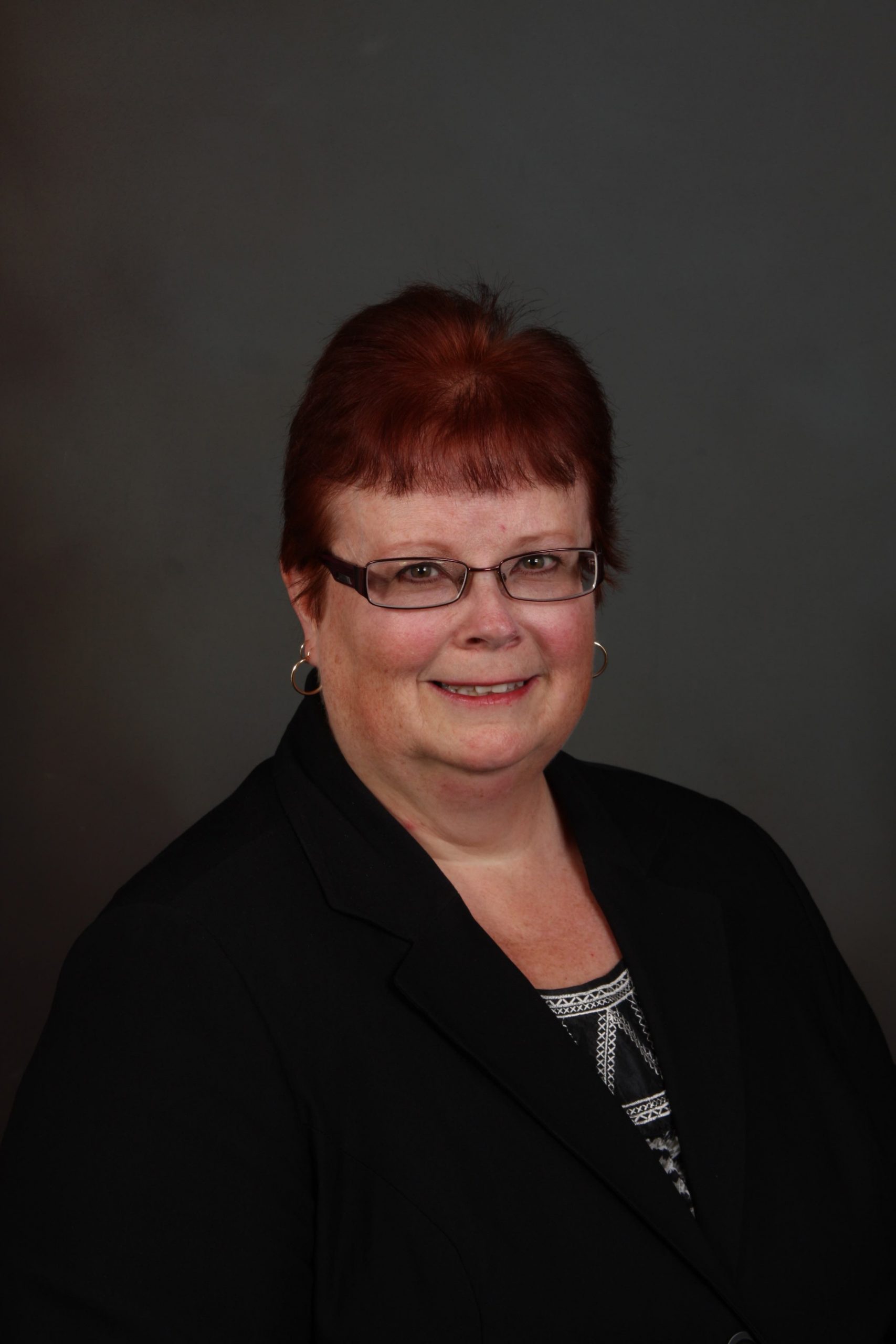
Barbara Grogan is the National Director-President of the Association of Administrative Assistants in Canada
Can we start with a little background information? Where are you from?
I grew up in a small town called Bolton, just north of Toronto, Ontario, Canada.
What is your background?
After graduating from high school I went to Montreal, Quebec to study at McGill University. I graduated in 1982 with a B.A. in Humanistic Studies, focusing on history and languages (French and Spanish).
How and why did you become an administrative professional?
In order to earn money while studying, I typed term papers (on an electric typewriter) for foreign students, earning $1.00 per page. This kept me in spending money. The summer between my second and third year at university, I worked for a temporary help agency in Toronto, where I provided summer vacation coverage to secretarial staff at the Atmospheric Environment Service, part of Environment Canada. I worked in the research branch, typing research papers for the scientists. After I completed my third and final year at university, I applied for a secretarial position directly with Environment Canada.
I enjoyed working in the office environment and my language and research skills were beneficial. I worked in various temporary positions until I received a permanent position. Through competitive processes, I was promoted to more senior positions including Secretary to the Assistant Deputy Minister. In order to move out of Toronto, I transferred to Agriculture Canada and moved to work in Guelph, Ontario. Again, through a series of competitive processes, I changed roles from Executive Assistant to Planning and Resource Officer within the Canadian Food Inspection Agency. As a result of another promotion within the Agency last year, I changed my field of work to focus on financial resources as a Financial Planning Officer.
You are very active as National Director-President of the Association of Administrative Assistants in Canada. What does this position entail and how did you come to be so involved with the AAA?
I first learned of the Association of Administrative Assistants through a magazine article. I thought it would be a good idea to join a professional organization. My co-workers were agrologists and veterinarians who belonged to their applicable associations and I saw the benefits of joining one in my field. I joined the Association as a member of the Hamilton branch – the closest branch to my work and home. I held several positions within the branch, including President. In 2005, I was appointed to the National Board as National Director Treasurer and became National Director-President in May 2010.
As National Director-President, I lead a 12 member National Board in all Association activities in accordance with the policies and by-laws established by the Association.
The AAA is 60 years’ old this year. What are the main changes you have seen in the last 60 years as an organisation in the profession?
The Association of Administrative Assistants/Association des Adjoints Administratifs is a Canadian, chartered non-profit professional organization founded in April 1951. The 60th Annual General Meeting was held in May 2012 in Toronto.
Membership numbers increase and decrease in line with economic pressures. We currently have seven branches: Barrie/Simcoe County, Calgary, Edmonton, Greater/Grand Sudbury, Hamilton, Toronto Charter and Vancouver. We have over 350 members across Canada who either belong to a branch or are considered Members-at-Large. The association is also pursuing new branch opportunities in Ottawa and Fort MacMurray.
The original title of the association included the phrase: ‘or Private Secretaries’– which obviously is no longer applicable, as the role of the Administrative Assistant has expanded to encompass many duties related to managing an office. Today’s office professional wears many hats that include project management, human resources, finance, researching, event management and of course, keeping abreast of latest computer technology. We have many members who are ‘virtual’ assistants, working from their home office and conducting business across the province, Canada and beyond. One thing that remains constant however, is the need for lifelong learning, so our Association motto ’Professionalism through education’ remains current.
Association members are encouraged to obtain the Qualified Administrative Assistant (Q.A.A.) designation. The Qualified Administrative Assistant Program consists of three compulsory courses and four elective courses offered at eighteen post-secondary institutions across Canada. The first graduating class was in May 1960. In May 2012, the Q.A.A. designation was awarded to our 715th graduate.
What inspires and motivates you?
I firmly believe in the association, its National Board and members. There is strength in numbers. As membership increases, the resulting revenue increases our ability to provide quality speakers at professional development seminars; maintain a bilingual website; and increase benefits to members such as a subscription to Executive Secretary magazine.
The National Board and Branch Executive Committees are all volunteers. For the past two years, I have prepared the annual report. I am so impressed with the variety of speakers at the dinner meetings and professional development seminars. The time and effort put into these activities challenges the work/home life/volunteer balance.
Some branches also support local charities for women and children through a monetary donation or a combination of money and products (toiletries, games, toys, clothing and food). The Association also donates $1.00 for each member to a charitable organization in the host city for the Annual General Meeting. The organizations are so grateful for the donations.
What has been the highlight of your career so far and why?
I have been very fortunate to have worked continuously for the past 30 years for the federal government in three different departments – Environment, Agriculture and now with the Canadian Food Inspection Agency. With each change in position and department/agency, I have continued to increase my knowledge in all things administrative, used my past experience when taking on new challenges and continue to learn every day.
What are the main challenges facing the profession at the moment?
I checked with my colleagues who are currently working as Executive or Administrative Assistants. Workload management continues to be a challenge. As many organizations are still recovering or trying to stay afloat in this atmosphere of recession, many companies are downsizing and trying to ‘work smarter – not harder’. Many tasks and roles fall onto the shoulders of Administrative Assistants, who already have a heavy workload. There is also an increasing diversity to the workload as, now more than ever, administrative staff are taking on a wider variety of tasks that range from HR duties, to accounting, to special event planning.
Another challenge is keeping on top of lightning-fast changes and upgrades in office technology. It takes ongoing training to keep on top of software and programs just to be able to do our jobs. If one is lucky, in-house training is available. If not, then networking organizations such as our association are invaluable in offering local professional development sessions on technology and office applications.
The other emerging practice is being ‘on call 24/7’. As our managers keep in touch via e-mail and Blackberries, even during their vacation, so must we – their ‘right hand’ assistants. It’s becoming more prevalent, even on vacation and weekends (while not strictly mandated, but somewhat expected) that we continue our tasks and communications with our manager or office.
What advice would you give someone just starting in the role?
The following is a compilation of ideas from the National Board:
- Be willing to continuously learn and develop your skills – there is always something new to learn.
- Professional development is not only important for honing your administrative skills, it is also positive to your mental well-being to know that you are able to grow in your chosen career.
- Take advantage of in-house or affordable training in emerging technology, social media and how it relates to your organization.
- Be proactive instead of reactive in investigating new technology and how it can help your role and office – impress your manager with taking those upgrading courses and information sessions; try to get to trade shows that provide the latest products for the office environment.
- Do not be influenced by negativity by others.
- Always know that just because someone else does the same task as you differently, that does not mean they or you are doing it incorrectly. It just means you both have a different way of achieving the end result.
- Be flexible – being adaptable to taking on new tasks enhances your range of expertise, even though it may not be what you signed on for.
- Take constructive criticism and be willing to adapt.
- Take time each day to read communications to employees in your organization and external news sources – your staying informed helps you keep your manager informed. Flag articles and tidbits that they should be aware of to keep them on top of happenings in and around your particular business community. Be a valued conduit for information coming into your office and keeping your manager informed in an increasingly busy and hectic business world, where they may not have time to review news sources.
So what’s next for Barbara Grogan? Where do you want to be in five years’ time?
This will be my last year as National Director-President of the Association of Administrative Assistants. I have enjoyed leading a National Board of dedicated office professionals who have, in their spare time, nurtured a growing association. I will still be a member as I truly believe involvement with the association has assisted my career through the various positions. Retirement is likely an option within the next five years.












